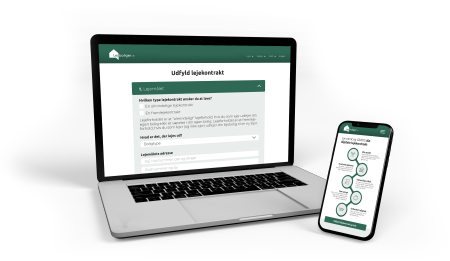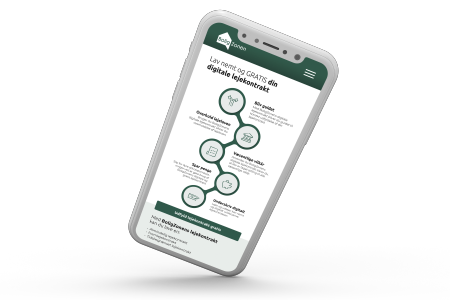Expat in Denmark

Expat meaning:
An expat is someone living outside their home country. Often the term is used for someone who works in another country. It could be the employer, who sends an expat to work in another country.
How do you become an expat in Denmark? Read this article and hopefully your questions will be answered.
Making the transition into being an expat in Denmark easier
If you were not asked to work in Denmark by your employer, but would just like to move to Denmark to work, it is best to find a job before going. It is hard to get a permanent visa in Denmark depending on where you come from. So be prepared for this, if you fall in love with the country and want to stay. Finding a job is not necessarily easy either, depending on your work qualifications. The advantage is that in Denmark most people speak English, and the bigger firms or middle sized firms are not afraid of hiring someone English speaking. You will also find that in a lot of cafés, restaurants and hotels in the bigger cities, the staff speaks English. Go online and search for jobs, ask in your network or put it up on LinkedIn. It is also an option to go job hunting for a few weeks in Denmark and then who knows – maybe you are lucky.
When you have secured your job and are moving, you need to find out all out the practicalities. Finding an apartment in Copenhagen is hard. Therefore, you might end up sharing an apartment with others – but hey, this is a great way to get new friends in a new country! Find your new shared apartment here on BoligZonen. If you are looking for a place in Copenhagen, look here. Moving to Aarhus, it can still be difficult to find apartments, but we give you lots of options here. Odense is a cheaper city to live in, and there are still plenty of English speaking expats and also students. Aalborg is equally cheap, and from there you get to experience some of the raw nature in Denmark.
Moving to another country always implies cultural differences and learning new ways. Danes will take this for granted, but it can be hard to handle as an expat. We have tried to gather some of the difficulties, you might experience as an expat.
- Language
Most people in the big cities speak English. There will be signs in English, and you will be able to find your way around. Although, it will be better for you to learn some Danish. Start early, because oftentimes people don’t learn Danish, unless they start language courses immediately. After some time you will pick up on words, but the major challenge is always to start speaking, writing and reading. For Scandinavians, Germans and Dutch it might be easier to learn Danish than Brits, Americans or Southern Europeans. Don’t worry – you will get there eventually! If you are not great with languages, don’t worry, Denmark is a great place to live and only speak English.
- Shopping
One thing that startles an expat is going grocery shopping. What does it mean that 1 kilo carrots cost 12 kroner? Is that a lot or not? And chicken for 40 kroner? Seems like a lot for someone who uses Euro. Get a good app on your phone to transfer the currency for you and start learning the Danish currency. Here are some of the standard prices (be aware that inflation makes prices change quite a lot currently)
- Coffee: From 30-55 kroner depending on what kind and where you buy it. 30 is for a standard black coffee and 55 kroner for something more exotic in one of the good coffee shops. Denmark is known for good coffee. If you are a coffee lover, this is the place to be.
- Milk costs between 12-15 kroner depending on what kind you want. Sometimes you can get plant milk cheaper
- Oats cost 9 kroner for 1 kilo. Danes love their oats! Maybe you are not as excited, and luckily you have plenty of other options. But Denmark is a breakfast country. Homemade buns in the morning, oats with milk and nuts, yoghurt, chia porridge, oat porridge – we even made a restaurant based on making porridge!
- Rhye bread costs around 15-18 kroner for 1000 g. But very often you can get rhye bread on sale! Danes probably love rhye bread more than they love oats. The bread in the supermarket is kind of dry, so make sure to toast it. If you want to treat yourself, go to the bakery to buy some freshly baked, and you will understand why the love is strong. If you decide to make it on your own, you will be a proper Dane!
- Chocolate will cost you everything between 7 kroner to 60 kroner for 100 g. Nothing probably varies more in price than chocolate! Perhaps you love chocolate. In Denmark you will find that dark chocolate is a thing, and be aware, some chocolate has licorice in it.
For understanding Danish money, you can use this to help you:
- 1 kroner (0,13 € and $): The smallest silver coin
- 2 kroner (0,27 € and $): The second smallest silver coin with a hole in
- 5 kroner (0,67 € and $): The biggest silver coin with a hole in
- 10 kroner (1,3 € and $): The smallest golden coin (often with the queen pictured on it)
- 20 kroner (2,7 € and $): The biggest golden coin (often with the queen pictured on it)
To help you it also says on the coin, what kind of coin it is! Smart. Remember to check the currency. It could have changed since this article was written. At the moment the pound is almost the same as the euro and dollar. Not exactly easy to recalculate, but that is why we have phones! You will find your way over time, and all of a sudden you understand prices in Denmark.
- Transportation
Do you know how to bike? Yes – good, but probably not like the Danes bike. No – start learning. Biking is the way to get around in Denmark. You could do public transportation, but where is the fun in that? Also biking is free. In the beginning it will feel scary, but after a while you will learn and feel like a proper Dane. A quick crash course:
- Put your arm up in the air, when you want to stop. And do it a bit before you stop. Then bikers behind you know that you are stopping (when imagining this, it might seem silly. But when you see how busy the bike lanes are, you will understand)
- Put your arm to the right or the left, if you are going in either direction. This will help car drivers and other bikers to know, where you are heading.
- If you have been overtaken by several bikes and you reach a traffic light where everyone has stopped - stay behind in line instead of cruising up in the front of the row. All the bikers have to overtake you again, and this will piss Danes of.
- Bike carefully in the beginning and always stay on the right side of the bike lane when you do this.
- Don’t bike and be on your phone at the same time. Also don’t suddenly stop when you see something you want a picture of. You will be categorized as a tourist, and this is not a good thing in the eyes of the Danish bikers.
How do you get hold of a bike? Ask your roomies, your network or look up a used bike on Marketplace or DBA. Often you can find proper bikes that are used only for a few years. Make sure though that nothing is broken on the bike and that it’s not a scam!
Even though you have decided to bike around the city, it is still a good idea to get your travel card. This will make travelling with public transportation cheaper for you. Buy in online at Rejseplanen and you can top it up at the station. If you are going longer distances, it is worth checking DSB (national rail), Flixbus (European bus company) og Kombado (Danish bus company) for cheap tickets beforehand. As soon as you know your plans, book your ticket, as it will get more expensive with time. And boy is Denmark an expensive country.
- Expat tax scheme Denmark
Maybe you have heard of the tax system in Denmark. In Denmark you pay a lot of taxes. But you also get the best welfare system in the world.
Maybe you have heard of tax scheme? If you are recruited by researchers or highly paid employees from outside Denmark, there is an option:
“they may choose to be taxed according to the tax scheme for researchers (the researcher scheme). This means that their tax rate is 32.84% for up to 7 years (gross tax rate of 27% plus labour market contributions). If they want to apply this scheme, they are not entitled to tax deductions or allowances of any kind.” (Skattestyrelsen)
You can talk more to your employer about this.
Being an expat in Denmark is fun! Now you’ve read about the challenging stuff, but there is a lot of good stuff ahead of you. Denmark is one of the best places to live according to several statistics. Look forward to a new adventure!




